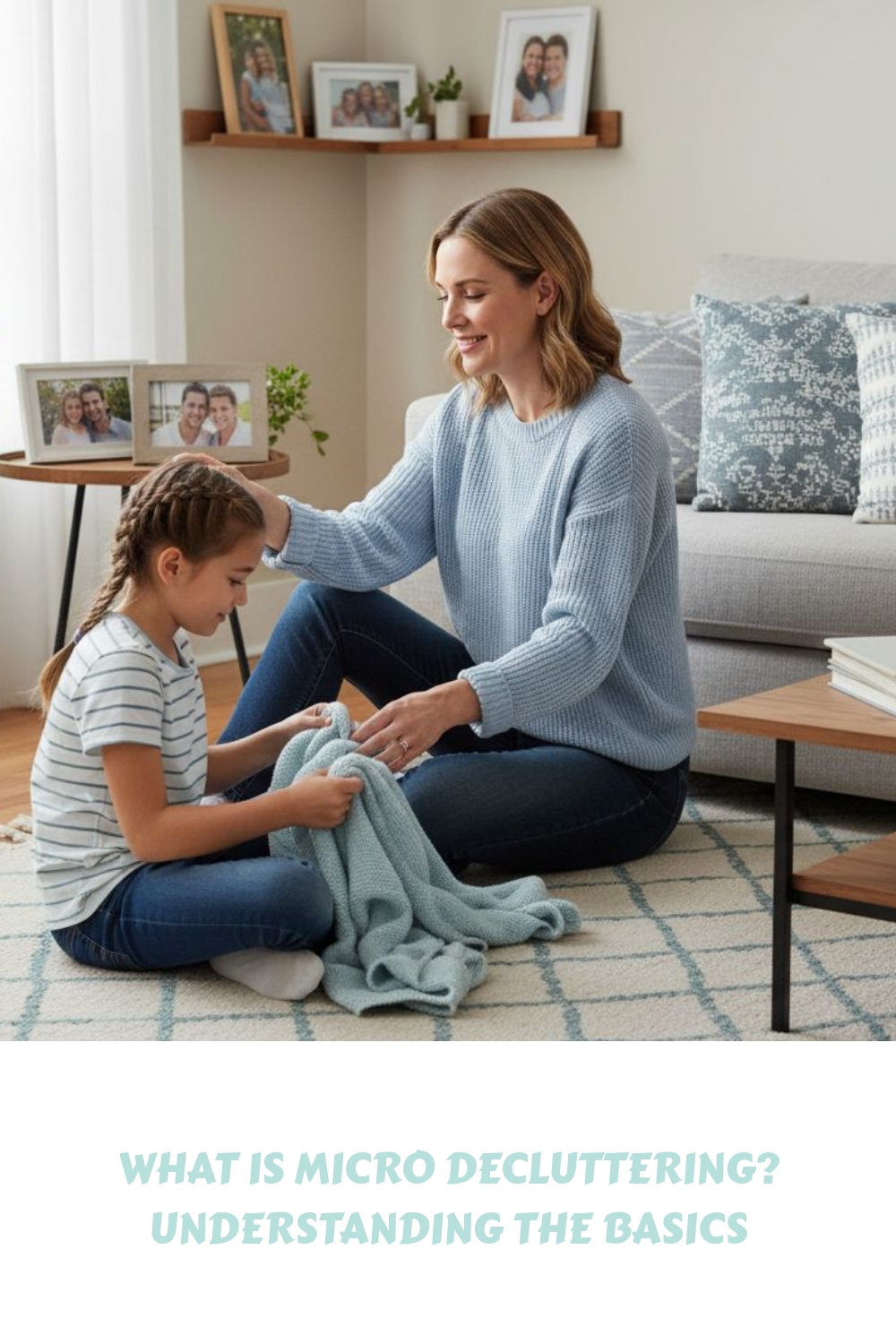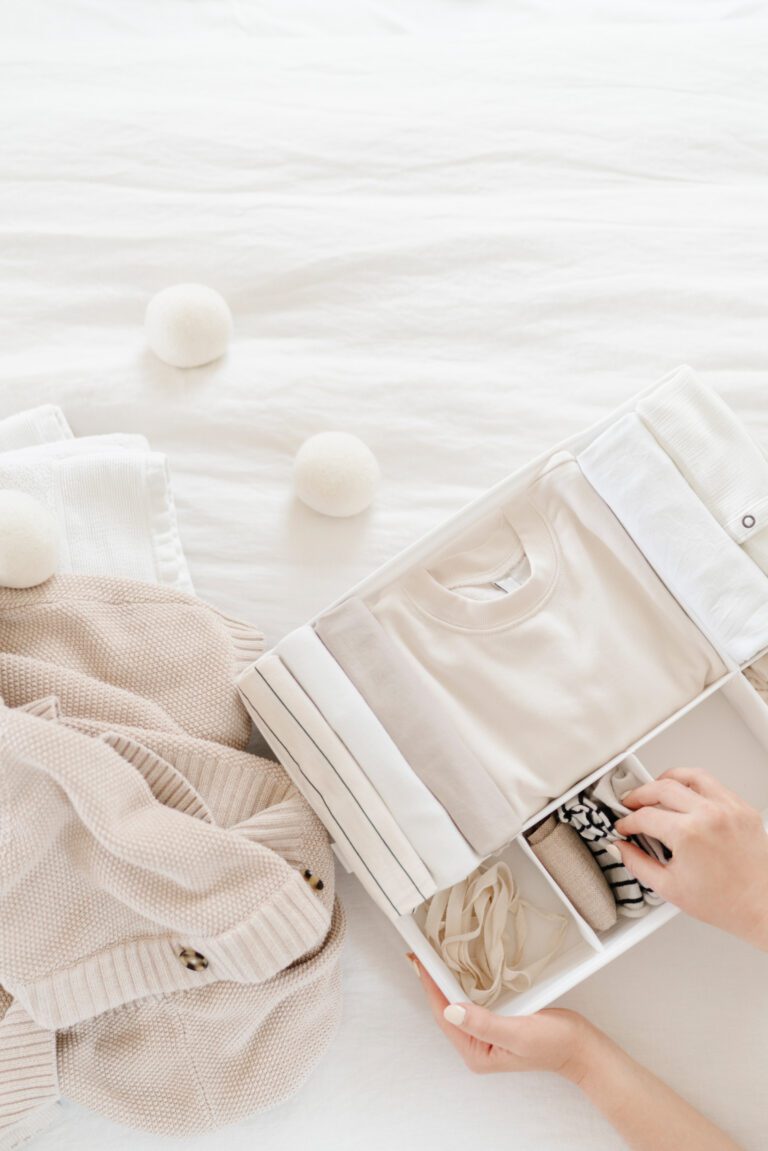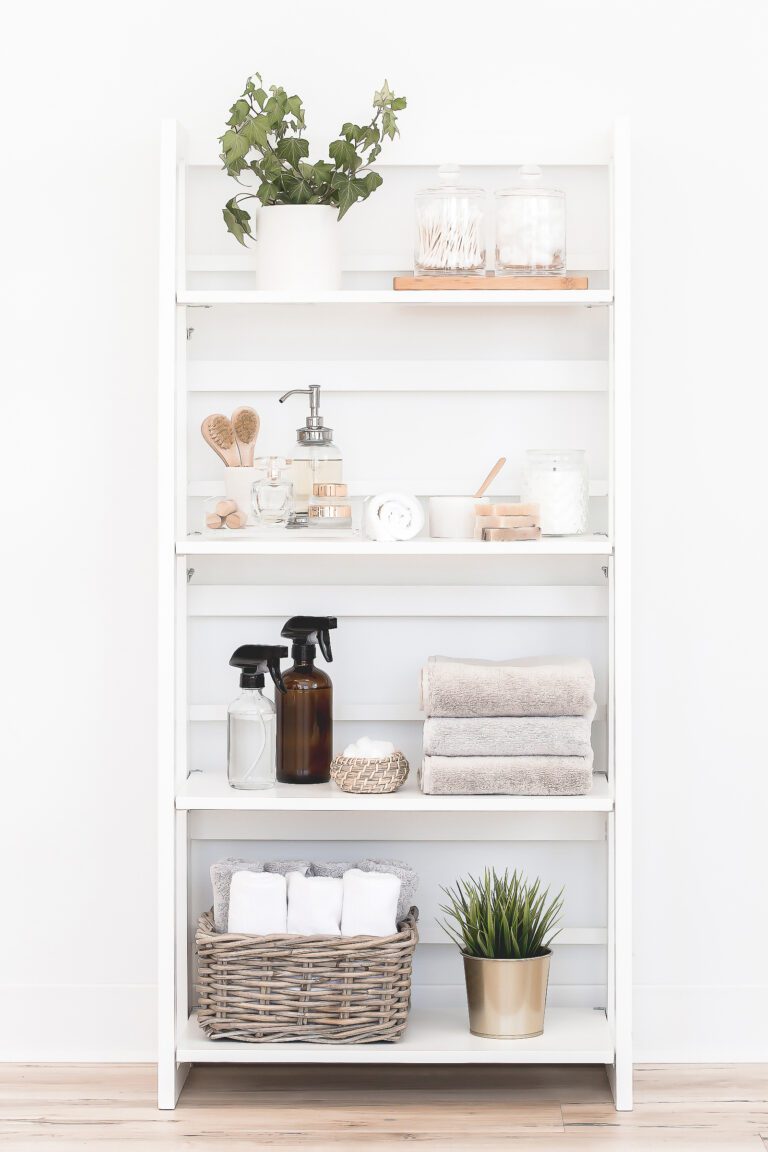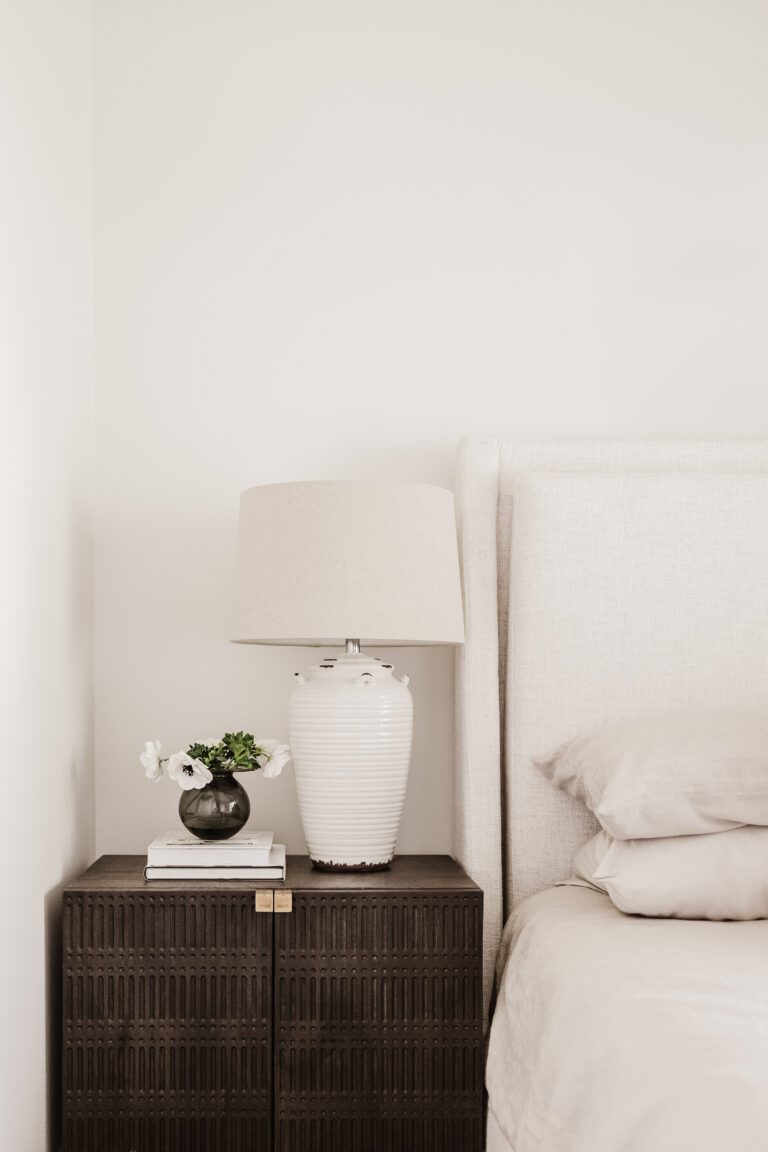What is Micro Decluttering? Understanding the Basics
Most people think tidying up means tackling piles of clutter for hours until your energy runs out. Studies show that just 10 minutes of focused decluttering a day can make a dramatic difference in your space and stress levels. Sounds simple, right? Actually, it goes deeper than quick fixes. Micro decluttering flips the script and turns small, bite-sized tasks into powerful habits that reshape not just your home, but your mind.
Table of Contents
- Understanding Micro Decluttering: A Definition
- The Importance of Micro Decluttering in Everyday Life
- Key Concepts Behind Micro Decluttering: The Why
- How Micro Decluttering Influences Mental Clarity
- Real-World Applications of Micro Decluttering
Quick Summary
| Takeaway | Explanation |
|---|---|
| Micro decluttering involves small tasks | Focus on completing small, manageable organizing tasks that take 5-15 minutes each. |
| Consistency is key to success | Regular short sessions create sustainable habits and prevent overwhelming mess accumulation. |
| Micro decluttering improves mental clarity | Organized spaces reduce cognitive overload, leading to better focus and decision-making. |
| Celebrate small victories often | Each completed task enhances motivation and builds momentum towards larger decluttering goals. |
| Apply micro decluttering to all spaces | Use this method in home, work, and digital environments to maintain organization efficiently. |
Understanding Micro Decluttering: A Definition
Micro decluttering is a strategic approach to organizing and simplifying your living space through small, manageable actions that progressively reduce household chaos. Unlike traditional decluttering methods that involve massive overhauls, micro decluttering focuses on bite-sized cleaning and organizing tasks completed in short time frames.
What Makes Micro Decluttering Unique
The core philosophy of micro decluttering centers on breaking down overwhelming organizational challenges into tiny, achievable steps. By targeting specific areas or spending just a few minutes each day, you transform your space without feeling exhausted or discouraged.
The following table compares micro decluttering with traditional decluttering methods, summarizing their key differences to help clarify what makes micro decluttering unique.
| Approach | Time Investment | Task Size | Psychological Impact | Typical Outcome |
|---|---|---|---|---|
| Micro Decluttering | 5-15 minutes | Small, targeted | Builds motivation through quick wins | Sustainable, ongoing maintenance |
| Traditional Decluttering | Hours or days | Large, exhaustive | Can lead to overwhelm, decision fatigue | Sporadic, often exhausting cleanups |
Key characteristics of micro decluttering include:

- Minimal Time Investment: Tasks typically take 5-15 minutes
- Focused Scope: Concentrates on small, specific areas like a drawer or shelf
- Consistent Practice: Regular short sessions instead of occasional marathon cleaning
The Psychology Behind Micro Decluttering
Psychologically, micro decluttering taps into our brain’s reward system. When you complete a small organizational task, you experience an immediate sense of accomplishment. According to behavioral research, these micro-victories build momentum and motivation, making larger decluttering goals feel more attainable.
By treating organization as a series of small, enjoyable challenges rather than a daunting project, you transform your relationship with home maintenance.
The approach reduces stress, increases productivity, and creates a sense of control over your living environment.
The Importance of Micro Decluttering in Everyday Life
Micro decluttering is more than a cleaning strategy. It is a transformative approach to managing personal spaces and mental well-being. By integrating small, intentional organizational actions into daily life, you create an environment that supports productivity, reduces stress, and enhances overall quality of life.
Mental Health and Space Management
Our living spaces directly influence our psychological state. Cluttered environments can increase anxiety and reduce cognitive performance. Learn more about creating calming home spaces, where micro decluttering becomes a powerful tool for mental clarity. Research from environmental psychology suggests that organized spaces contribute to:
- Reduced Cognitive Overload: Fewer visual distractions mean improved focus
- Lower Stress Levels: Predictable, tidy environments decrease cortisol production
- Enhanced Decision Making: Clear spaces support clearer thinking
Practical Benefits of Consistent Micro Decluttering
Consistent micro decluttering offers tangible advantages beyond aesthetic appeal. By dedicating small amounts of time regularly, you prevent overwhelming accumulation of mess. According to organizational experts, spending just 10 minutes daily can transform your living space and mental landscape.
These incremental efforts compound over time, creating sustainable organizational habits that feel effortless and natural.
This table outlines core psychological and practical benefits of micro decluttering, making it easy to scan how each benefit impacts daily life.
| Benefit | Description |
|---|---|
| Reduces Cognitive Overload | Fewer visual distractions support better focus |
| Lowers Stress Levels | Tidy spaces decrease cortisol and support relaxation |
| Enhances Decision Making | Clear environments enable more effective, confident choices |
| Prevents Overwhelming Mess | Quick, consistent sessions stop clutter from accumulating |
| Builds Sustainable Habits | Regular practice makes order and maintenance feel natural |
| Increases Motivation | Achievable goals keep momentum and engagement high |
Key Concepts Behind Micro Decluttering: The Why
Micro decluttering emerges from a profound understanding that personal organization is not about perfection, but about creating sustainable, manageable systems that support your lifestyle. By recognizing the psychological and practical barriers that prevent effective home management, this approach offers a compassionate, realistic path to maintaining order.
Psychological Foundations of Micro Decluttering
Decision fatigue plays a significant role in why traditional decluttering methods fail. When faced with massive organizational projects, people often feel overwhelmed and shutdown. Explore smart decluttering strategies that break through these mental barriers. Research from psychological studies reveals that breaking tasks into smaller, more manageable segments helps overcome cognitive resistance by:
- Reducing mental friction associated with large tasks
- Creating immediate, achievable goals
- Building momentum through consistent small victories
The Behavioral Science of Small Changes
Micro decluttering leverages principles of behavioral psychology to transform habit formation. Instead of viewing organization as a monumental task, this approach treats it as a series of small, intentional actions. By focusing on minimal time investments and targeted areas, you create a positive feedback loop that makes maintaining order feel natural and effortless.
The core philosophy recognizes that lasting change happens through consistent, incremental efforts. Each small organizational action builds confidence, reduces stress, and gradually reshapes your relationship with your living space. It is not about achieving a perfect home, but about creating an environment that supports your well-being and productivity.
How Micro Decluttering Influences Mental Clarity
Mental clarity is not just an abstract concept but a tangible state directly influenced by our physical environment. Micro decluttering serves as a powerful mechanism for reducing cognitive noise and creating mental space that promotes clearer thinking, emotional stability, and enhanced decision-making capabilities.
The Cognitive Load of Clutter
Visual chaos translates into mental chaos. When your living spaces are cluttered, your brain constantly processes unnecessary visual information, which depletes cognitive resources. Discover effective strategies for reducing household distractions, and understand how micro decluttering can serve as a mental reset button. According to psychological research, an unorganized environment can:
- Increase stress hormone levels
- Reduce concentration and focus
- Create underlying feelings of anxiety and overwhelm
Neurological Benefits of Organized Spaces
Micro decluttering triggers positive neurological responses that go beyond simple cleaning. Each small organizational action releases dopamine, the brain’s reward neurotransmitter, creating a positive feedback loop that motivates continued maintenance. By breaking down overwhelming tasks into tiny, manageable actions, you train your brain to view organization as an enjoyable, achievable process rather than a dreaded chore.
The cumulative effect of consistent micro decluttering is a profound transformation in cognitive functioning. You develop greater mental resilience, improved emotional regulation, and a sense of control over your environment. It is not merely about having a tidy space, but about creating a mental framework that supports your overall well-being and productivity.
Real-World Applications of Micro Decluttering
Micro decluttering is not a theoretical concept but a practical approach that can be seamlessly integrated into various aspects of daily life. By understanding how to apply this method across different environments and scenarios, you can transform your relationship with organization and create sustainable habits.
Home Space Transformation
Every home contains multiple zones that benefit from micro decluttering techniques. Small, targeted interventions can dramatically improve living spaces. Learn practical strategies for quick home organization when time is limited. These focused approaches work exceptionally well in high-traffic areas such as:
- Kitchen counters and pantry shelves
- Bathroom storage units
- Home office desk and work areas
- Entryway and mudroom spaces
Personal and Professional Productivity Zones
Micro decluttering extends far beyond physical spaces. It becomes a powerful methodology for managing digital environments, work processes, and personal workflows. By applying small, consistent organizational strategies, you can reduce mental clutter and increase efficiency in both personal and professional domains.
Digital micro decluttering might involve spending five minutes daily organizing email folders, clearing computer desktop icons, or systematically deleting unnecessary smartphone applications. These brief, intentional actions prevent overwhelming buildup and maintain cognitive clarity. The goal is not perfection, but consistent, incremental improvement that makes organization feel natural and effortless.

Ready to Make Micro Decluttering Your Everyday Habit?
Feeling overwhelmed by home chaos or tired of falling behind on never-ending organizing projects? Micro decluttering offers a real solution. You have learned how small, manageable actions reduce stress and help you reclaim control. Yet even when you understand the benefits, figuring out where to start can often be confusing and discouraging.
Take the first step today by exploring even more practical strategies in our Decluttering Archives. You will find room-by-room tips and bite-sized tasks that fit seamlessly into your busy life. Want additional inspiration for embracing simplicity and clarity at home? Visit our collection of Minimalism resources. Don’t wait for the perfect moment—now is the right time to create a calmer, neater home with simple steps you can start today.
Frequently Asked Questions
What is micro decluttering?
Micro decluttering is a method of organizing and simplifying your living space through small, manageable tasks completed in short time frames, focusing on specific areas to reduce household clutter gradually.
How does micro decluttering differ from traditional decluttering?
Micro decluttering breaks down overwhelming organizational tasks into smaller, bite-sized actions, requiring minimal time investment, unlike traditional decluttering that may involve large-scale cleanups.
What are the psychological benefits of micro decluttering?
Micro decluttering can enhance mental clarity, reduce stress levels, and improve decision-making by creating organized spaces that lower cognitive overload and promote a sense of control over one’s environment.
How can I incorporate micro decluttering into my daily routine?
You can incorporate micro decluttering into your routine by dedicating just 5-15 minutes each day to focus on specific areas, such as a drawer or shelf, making it easier to maintain order without feeling overwhelmed.
Recommended
- Understanding the Advantages of Minimalism at Home | Simple Neat Home
- Understanding Why Declutter Your Home Matters | Simple Neat Home
- What is Minimalist Living? Understand Its Essence | Simple Neat Home
- Understanding Types of Decluttering Methods: A Comprehensive Guide | Simple Neat Home








